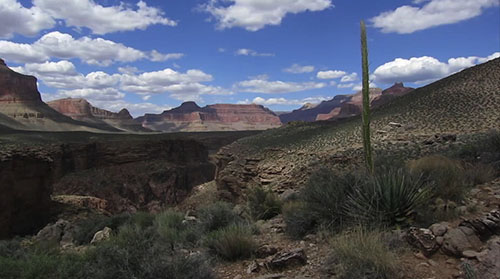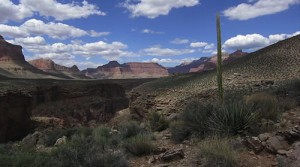Park Service balks at requirement to plan ahead for future shutdowns

Cronkite News
The National Park Service is not interested in coming up with plans to let states pay to keep parks open should another government shutdown occur, a service official testified Thursday to a House subcommittee.
Park Service Comptroller Bruce Sheaffer said a bill to require such planning for all 401 national parks could take too much time and money – a position that was blasted as “atrocious” by the subcommittee chairman.
The Provide Access and Retain Continuity Act was one of two bills in response to the October shutdown of the federal government, when the closure of parks like the Grand Canyon cost states like Arizona millions in tourism revenues.
The other bill would direct the federal government to reimburse states for money they spent to reopen national parks during the shutdown, something the park service has said it does not have the authority to do.
Democrats on the House Natural Resources subcommittee derided the hearing as a GOP ploy to deflect blame for the October shutdown. Rather than preparing for another shutdown, Congress needs to pass a budget each year, said Rep. Raul Grijalva, D-Tucson.
“We shouldn’t be coming up with doomsday preparations for the next shutdown,” Grijalva said.
But preparing for another shutdown is just what the PARC Act would do. The bill would require the park service to work out deals in advance with states to fund the continued operation of parks if the federal government runs out of money.
That happened after the fact with several states, including Arizona, in the October shutdown. But forcing the service to work out those deals ahead of time would require “an enormous number of agreements with state governments just to prepare for the possibility that a funding lapse might occur,” Sheaffer testified.
That brought a sharp rebuke from Rep. Rob Bishop, R-Utah, who criticized the park service’s position and its “Soviet-era mindset” of centralized control of land.
Bishop became exasperated with Sheaffer when Utah Lt. Gov. Spencer Cox testified that once the park service started taking states’ offers, it took less than a day to reopen some of the national parks in his state.
“The workflow to actually make prior preparations for what could happen is too onerous that the department cannot actually spend the time and effort to do that, when you were able to solve this problem in less than 24 hours?” Bishop asked Sheaffer. “Is that really what this department is testifying?”
Sheaffer said such pre-emptive agreements might happen quickly, depending on states’ requests. But considering that there are hundreds of national parks across the country, the process might be lengthy, he said.
Rep. Peter DeFazio, D-Ore., agreed that the service could be wasting its time preparing for something that should not happen again.
“For something that’s happened twice since I’ve been in Congress for 27 years, and hopefully will never happen again, I would think this would be really a waste of taxpayers’ money to enter into these proactive agreements with the states,” he said.
The subcommittee also discussed a bill that would reimburse states like Arizona that paid to reopen parks during the shutdown.
Arizona gave the park service $1.5 million in October to keep Grand Canyon National Park open for 16 days. But when the shutdown ended five days later, the park service had only spent $465,000 and gave back the roughly $1 million it had not yet used, the governor’s office said at the time.
Sheaffer said the park service does not have the authority to reimburse the states for the money it spent to reopen parks, including the $465,000 for Arizona. But HR 3286 would require the Treasury to repay the states the remaining funds, which totals about $2 million nationwide.
Gov. Jan Brewer asked the state’s congressional delegation for help getting that money returned, and the lawmakers have written Park Service Director Jon Jarvis seeking the money.
Representatives from the governor’s office did not respond to calls for comment Thursday.















